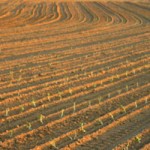Pretoria – Government cannot talk about improving food security without referring to land reform, President Jacob Zuma told members of the African Farmers Association of South Africa (AFASA) at a gala dinner on Monday.
“In 2009, we made a commitment to transfer 30 percent of the 82 million hectares of agricultural land which was white-owned in 1994 to black people by 2014. This 30 percent translates to 24.5 million hectares.
“Between 1994 and December 2011, 3.9 million hectares were redistributed through the land acquisition and redistribution programme. We have learned a number of lessons from the exercise,” he said.
According to the President, one major lesson was the process of acquiring and distributing a particular piece of land was often lengthy and this escalated the cost of redistribution because the previous owner stops investing in the land.
He said many farms are in a poor state of repair at the point of acquisition, adding that there has often been a decline in productivity on the redistributed farms.
Zuma said this led to the adoption of the recapitalisation programme in November 2010.
The objectives of the recapitalisation programme include increasing food production, food security, commercialisation of small farmers and creating employment opportunities.
By December 2011, 595 farms were in the process of being rehabilitated through mainly rebuilding infrastructure.
“We are also already looking ahead as a country as to what our agriculture sector should look like in the next 30 years or so, through the National Development Plan, produced by the National Planning Commission in the Presidency,” he said.
Commercial agriculture is currently producing 90 percent of the agricultural output. It is estimated that it consists of about 37 000 members.
On the other hand, there are 25 million people who live in the rural areas and they produce 10 percent of the agricultural output through subsistence farming.
The President said more support for emerging farmers will enable government to improve the participation of black people, in particular Africans in commercial agriculture.
He further said 11 000 new smallholders have been established since 2009, out of a 50 000 target that was set for up to 2014.
Support has been provided to both new and long-established farmers through many programmes including Letsema, the Recapitalisation and Development Programme and through the funding agency MAFISA.
Despite the support, Zuma said only a marginal number of 5 381 smallholders are involved in agri-businesses and a mere 3 910 are linked to markets.
“To achieve further success, smallholder farmers require a comprehensive agribusinesses support package including favourable commodity pricing; access to finance; provision of technical expertise and mentorship; and contracted markets,” he said.
Agriculture, Forestry and Fisheries Minister Tina Joemat Pettersson said AFASA has played a key role in representing the views of smallholder farmers.
“I have been impressed by the passion with which they have constantly demonstrated to assist the government, and especially our department, to deliver the best services to smallholder farmers,” she said.
South Africa has 230 000 land reform beneficiaries and emerging farmers as well as 35 000 commercial farmers.
The current challenges in the agriculture sector include a shrinking commercial farmer community, inadequate assistance to smallholder farmers, increasingly rising food prices and climate change.
“Some of the constraints that smallholder farmers face relate to lack of access to land, poor physical and institutional infrastructure,” said Pettersson.
She said most smallholder farmers are located in rural areas and mostly in the former homelands where lack of both physical and institutional infrastructure limits their expansions.
“Lack of access to proper roads, limit the ability of a farmer to transport inputs, produce and also access information,” she said. – SAnews.gov.za








